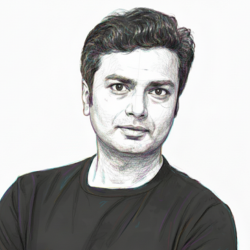Disclaimer: The ideas in this post are wild thoughts meant to provoke reflection. They are not prescriptions, nor definitive truths. Consider them sparks for thinking, not conclusions.
Have we forgotten how to live? Truly live—not in the sense of merely surviving, but in the sense of being fully awake to our desires, our passions, our capacity for joy? Perhaps it’s time to examine the structures around us with a little audacity.
Let’s classify people into three rough categories:
- The Rulers: Those who govern, direct, or aspire to control—politicians, policymakers, ideologues, power-seekers. Their existence revolves around authority, influence, and the shaping of systems.
- The Enablers: The government employees, police, military, bureaucrats, and administrators. They may not seek power for themselves, but their work sustains the machinery of authority and enforces the rules that shape the society around them.
- The Living: The majority who simply want to live—to love, create, explore, rest, and find happiness. They do not aspire to rule or govern; they want freedom, not power.
Now comes the unsettling question: Has someone stolen the life of the third kind?
In the name of security, stability, and societal order, governments have created a structure where almost everyone ends up serving the system. The “Living” are expected to obey rules, pay taxes, follow protocols, and contribute labor—often in jobs they don’t love—so that the first two categories can thrive and maintain the system.
Consider the promises: “We provide safety. We provide insurance. We provide opportunity.” On the surface, these sound like gifts. But look closer. To receive these “gifts,” you must comply, submit, and work—sometimes jobs that feel more like survival than fulfillment. Resources that would have been freely yours—time, space, energy, choice—are subtly reallocated to sustain a system that demands your service.
In effect, has the system trapped everyone in a form of modern servitude? The government gives back a fraction of what we produce—roads, hospitals, education, law enforcement—but it comes at the cost of a portion of our freedom, creativity, and spontaneity. The “Living” spend most of their time serving, directly or indirectly, the structure of governance, often without even realizing it.
Examples:
- Work as survival: Millions work long hours in roles that do not ignite passion, simply to earn wages to meet basic needs—needs that are shaped by the market, laws, and taxation.
- Regulation and bureaucracy: Every permit, license, or rule is a form of control. Even if it’s designed to “protect,” it nudges individuals to comply with a system that limits free exploration.
- Safety in exchange for choice: Insurance, policing, and social services create security—but often at the cost of spontaneity, experimentation, and autonomy. Life becomes a carefully choreographed set of trade-offs.
Some might argue this is necessary, that without governance we would have chaos. That is a fair point. But the question isn’t whether some governance is needed—it’s whether the scale of control has gone too far, whether we have collectively agreed to give up more freedom than we notice, in exchange for promises of safety that may never fully satisfy.
Perhaps the true act of rebellion isn’t overthrowing governments—it’s reclaiming our right to live fully, even within the system. It’s choosing where to obey and where to resist, reclaiming creativity, time, and autonomy, and refusing to let life be hijacked by invisible rules.
The wild thought remains: in the quest for order, efficiency, and security, have we allowed ourselves to become cogs in a machine we call “society”? And if so, how do we remember the simple joy of being alive, ungoverned, and free?
